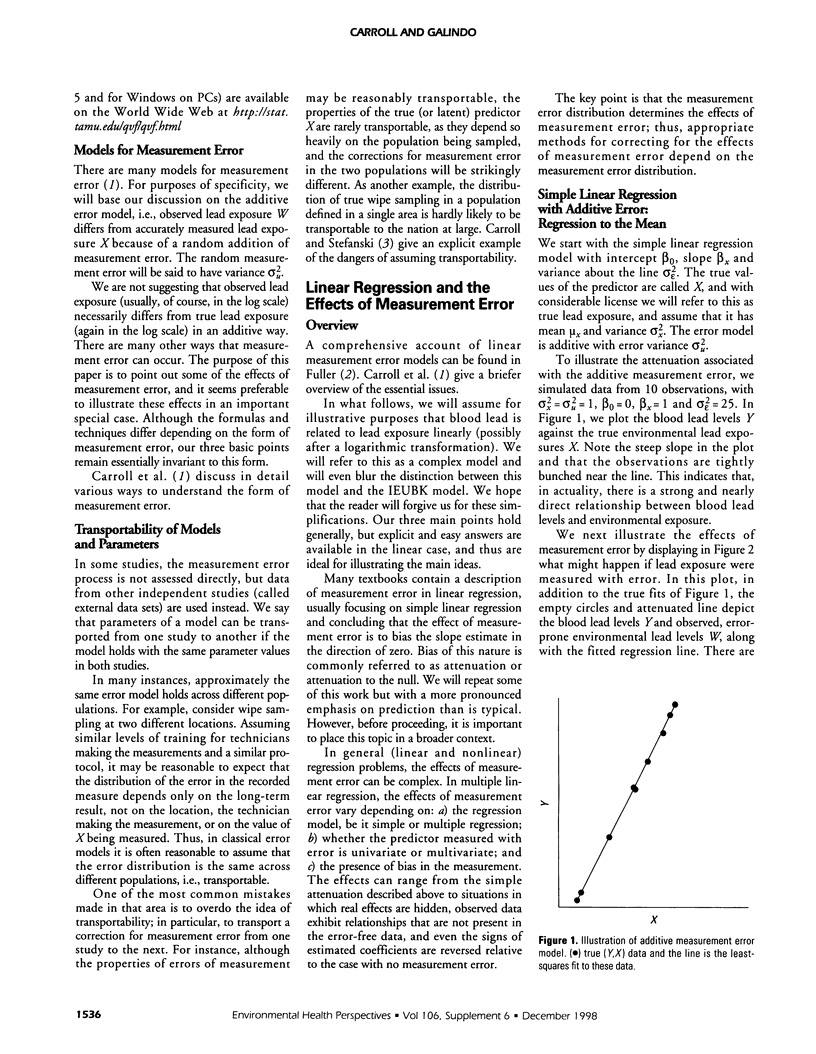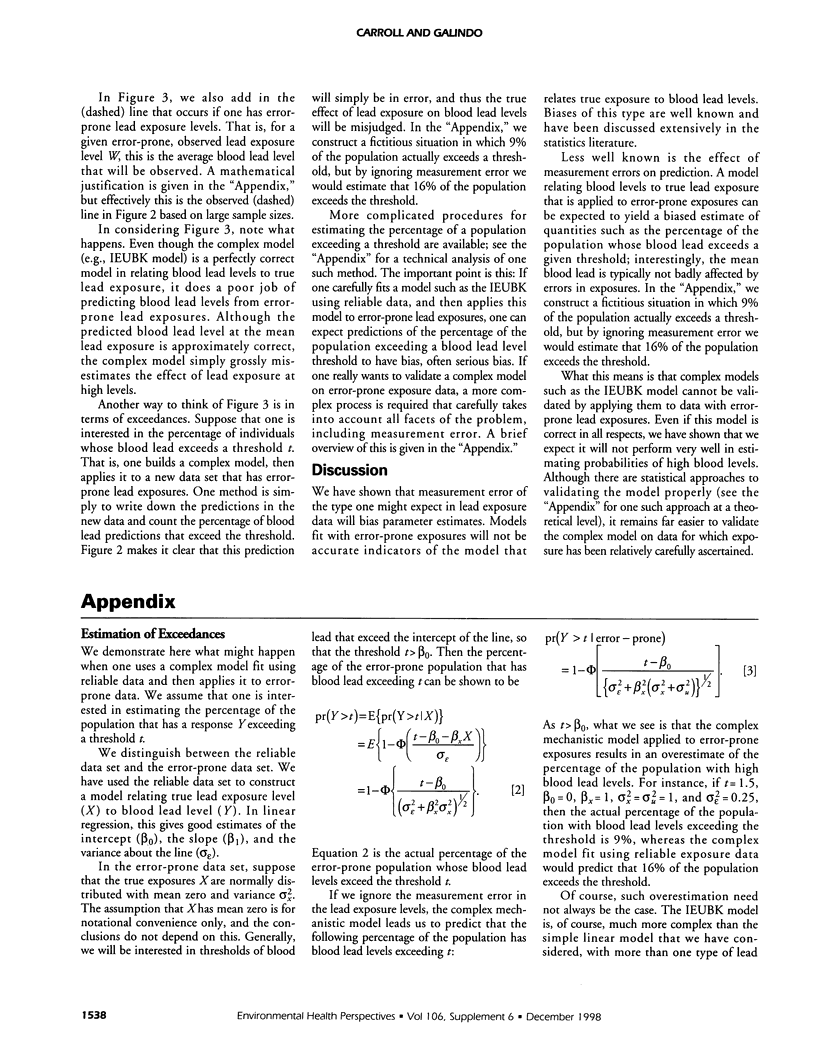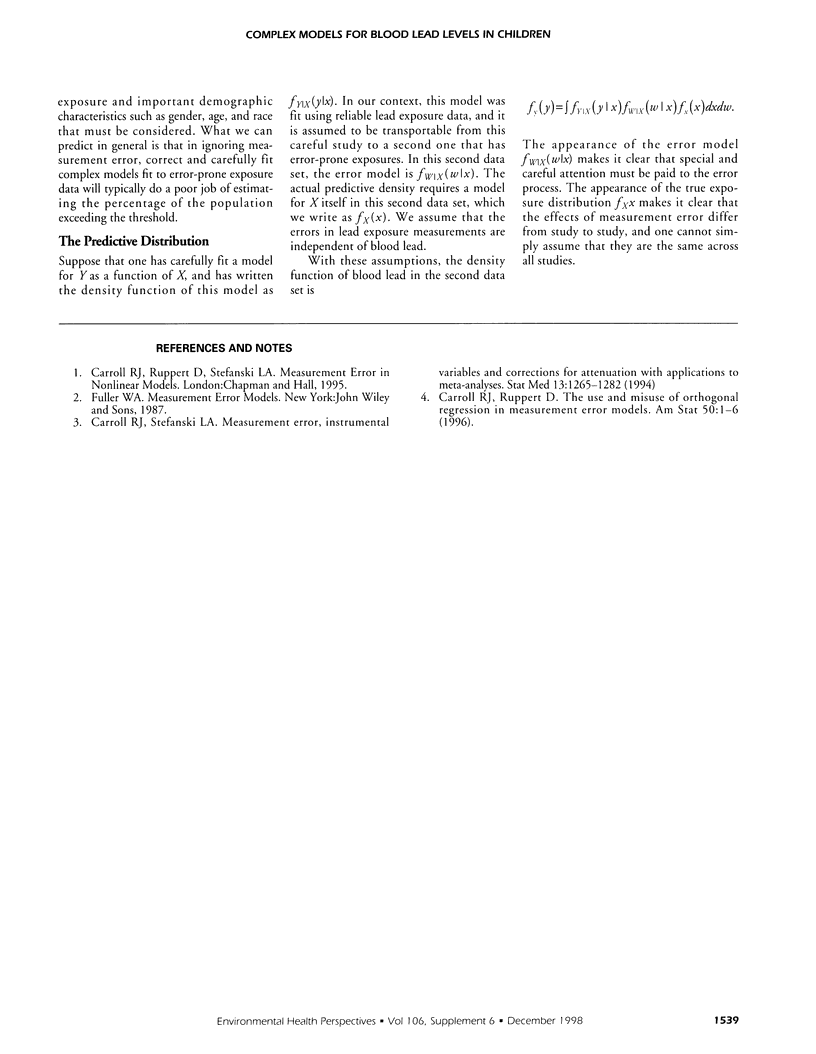Abstract
Measurement error causes biases in regression fits. If one could accurately measure exposure to environmental lead media, the line obtained would differ in important ways from the line obtained when one measures exposure with error. The effects of measurement error vary from study to study. It is dangerous to take measurement error corrections derived from one study and apply them to data from entirely different studies or populations. Measurement error can falsely invalidate a correct (complex mechanistic) model. If one builds a model such as the integrated exposure uptake biokinetic model carefully, using essentially error-free lead exposure data, and applies this model in a different data set with error-prone exposures, the complex mechanistic model will almost certainly do a poor job of prediction, especially of extremes. Although mean blood lead levels from such a process may be accurately predicted, in most cases one would expect serious underestimates or overestimates of the proportion of the population whose blood lead level exceeds certain standards.
Full text
PDF




Selected References
These references are in PubMed. This may not be the complete list of references from this article.
- Carroll R. J., Stefanski L. A. Measurement error, instrumental variables and corrections for attenuation with applications to meta-analyses. Stat Med. 1994 Jun 30;13(12):1265–1282. doi: 10.1002/sim.4780131208. [DOI] [PubMed] [Google Scholar]


